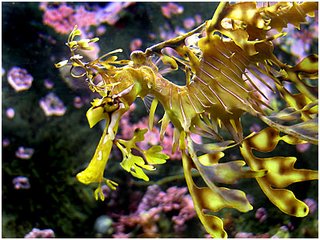 The late Isaac Asimov (an ardent anti-creationist) declared, "In man is a three-pound brain which, as far as we know, is the most complex and orderly arrangement of matter in the universe." It is much more complex than the most sophisticated computer ever built. Wouldn't it be logical to assume that if man's highly intelligent brain designed the computer, then the human brain was also the product of design?
The late Isaac Asimov (an ardent anti-creationist) declared, "In man is a three-pound brain which, as far as we know, is the most complex and orderly arrangement of matter in the universe." It is much more complex than the most sophisticated computer ever built. Wouldn't it be logical to assume that if man's highly intelligent brain designed the computer, then the human brain was also the product of design?Scientists who reject the concept of a Creator God agree that all living things exhibit evidence of design. In essence, they accept the design argument of Paley, but not Paley's Designer.
For example, Dr. Michael Denton, a non-Christian medical doctor and scientist with a doctorate in molecular biology, concludes:
It is the sheer universality of perfection, the fact that everywhere we look, to whatever depth we look, we find an elegance and ingenuity of an absolutely transcending quality, which so mitigates against the idea of chance...Alongside the level of ingenuity and complexity exhibited by the molecular machinery of life, even our most advanced artifacts appear clumsy. We feel humbled, as Neolithic man would in the presence of twentieth-century technology...
It would be an illusion to think that what we are aware of at present is any more than a fraction of the full extent of biological design. In practically every field of fundamental biological research ever-increasing levels of design and complexity are being revealed at an ever-accelerating rate.
 Dr. Richard Dawkins, holder of the Charles Simonyi Chair of Public Understanding of Science at Oxford University, has become one of the world's leading evolutionist spokespersons. His fame has come as the result of the publication of books, including The Blind Watchmaker, which defends modern evolutionary theory and claims to refute once and for all the notion of a Creator God. He states the following:
Dr. Richard Dawkins, holder of the Charles Simonyi Chair of Public Understanding of Science at Oxford University, has become one of the world's leading evolutionist spokespersons. His fame has come as the result of the publication of books, including The Blind Watchmaker, which defends modern evolutionary theory and claims to refute once and for all the notion of a Creator God. He states the following:We have seen that living things are too improbable and too beautifully "designed" to have come into existence by chance.
There is no doubt that even the most ardent atheist concedes that design is evident in the animals and plants that inhabit our planet. If Dawkins rejects "chance" in design, what does he put in place of "chance" if he does not accept a Creator God?


